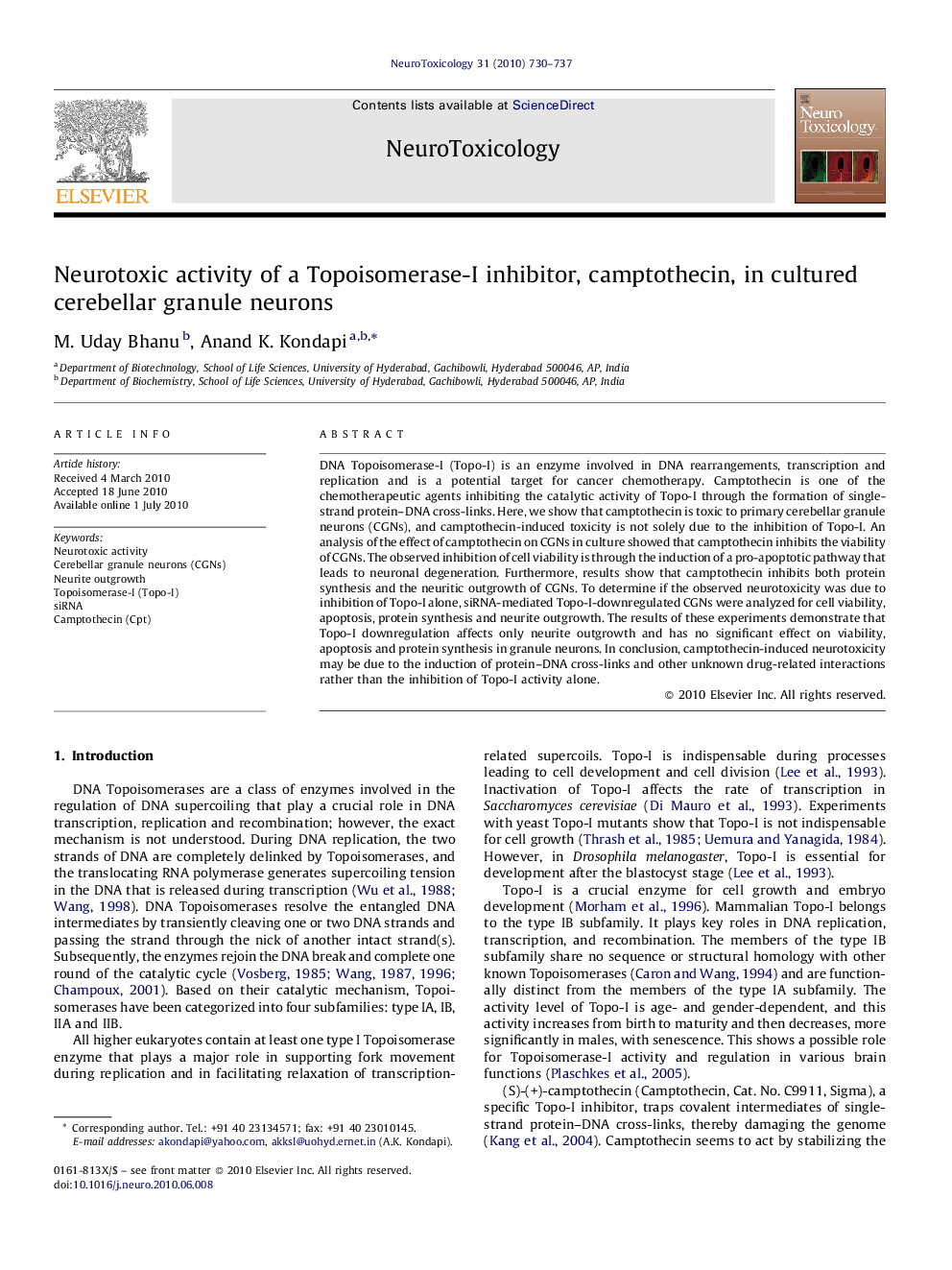| Article ID | Journal | Published Year | Pages | File Type |
|---|---|---|---|---|
| 2590568 | NeuroToxicology | 2010 | 8 Pages |
DNA Topoisomerase-I (Topo-I) is an enzyme involved in DNA rearrangements, transcription and replication and is a potential target for cancer chemotherapy. Camptothecin is one of the chemotherapeutic agents inhibiting the catalytic activity of Topo-I through the formation of single-strand protein–DNA cross-links. Here, we show that camptothecin is toxic to primary cerebellar granule neurons (CGNs), and camptothecin-induced toxicity is not solely due to the inhibition of Topo-I. An analysis of the effect of camptothecin on CGNs in culture showed that camptothecin inhibits the viability of CGNs. The observed inhibition of cell viability is through the induction of a pro-apoptotic pathway that leads to neuronal degeneration. Furthermore, results show that camptothecin inhibits both protein synthesis and the neuritic outgrowth of CGNs. To determine if the observed neurotoxicity was due to inhibition of Topo-I alone, siRNA-mediated Topo-I-downregulated CGNs were analyzed for cell viability, apoptosis, protein synthesis and neurite outgrowth. The results of these experiments demonstrate that Topo-I downregulation affects only neurite outgrowth and has no significant effect on viability, apoptosis and protein synthesis in granule neurons. In conclusion, camptothecin-induced neurotoxicity may be due to the induction of protein–DNA cross-links and other unknown drug-related interactions rather than the inhibition of Topo-I activity alone.
